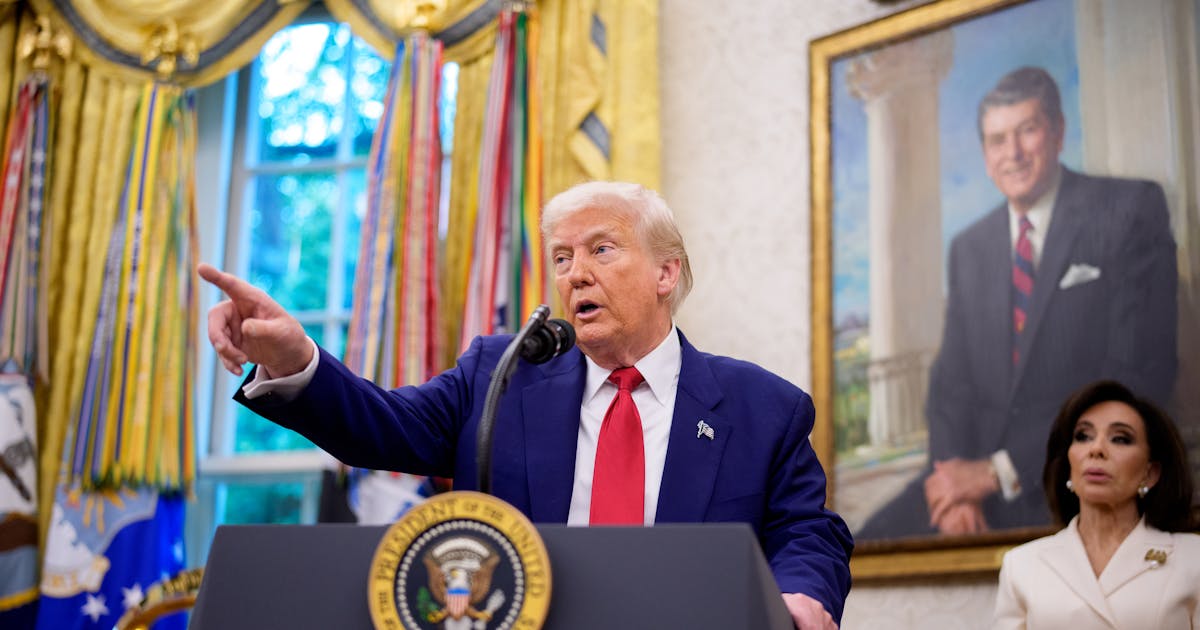Trump's Officials Subvert Economic Reports: A New Level of Interference
- Better Narrative Group

- Jun 5, 2025
- 3 min read

Trump Administration Delays Economic Report Amid Trade Deficit Concerns
In a recent development scrutinized by trade analysts, officials in the Trump administration have reportedly intervened in the release of a key economic report that forecasts an increase in the trade deficit for agricultural goods. This prediction directly contradicts President Trump's ongoing narrative that his administration's tariff policies are beneficial for domestic agriculture.
The quarterly report from the U.S. Department of Agriculture, which has historically served as an essential resource for farm organizations, traders, and lawmakers, experienced a five-day delay before its public release. Despite the postponement, the figures within the report remained unchanged from the original analysis, as reported by Politico.
Critics argue that this action reflects a broader trend of the administration limiting transparency when data fails to align with its favorable portrayals of economic policies. A trade deficit indicates that the U.S. is importing more agricultural goods than it is exporting, which challenges the administration's claims regarding strengthening local production capabilities. Joe Glauber, a former chief economist at the USDA, emphasized the importance of objectivity in these reports, stating, “Objectivity is really key here and the public depends on it...To lose that trust would be terrible.”
USDA spokesperson Alec Varsamis explained the delay, stating, “The report was hung up in internal clearance process and was not finalized in time for its typical deadline...the Department is undergoing a review of all of its non-statutory reports, including this one, to determine next steps.” At this point, it remains uncertain if the full, unredacted analysis will ever be made public.
Trump's Trade Negotiation Challenges With China
In another significant development regarding trade relations, President Trump expressed his frustrations on social media about the complexities of negotiating a deal with China. At 2:17 a.m. Wednesday, he posted his concerns about the difficulty of reaching an agreement with Chinese President Xi Jinping, stating, “I like President Xi of China, always have, and always will, but he is VERY TOUGH, AND EXTREMELY HARD TO MAKE A DEAL WITH!!!”
This message comes amidst an expected phone call between Trump and Xi regarding their $600 billion trade relationship, particularly in light of tariffs imposed by Trump. Treasury Secretary Scott Bessent asserted the urgency for China to comply with U.S. demands, stating, “They either want to be a reliable partner to the rest of the world, or they don’t.” However, sources have indicated that Trump appears increasingly preoccupied with the outcomes of these negotiations.
With a partial trade agreement reached in May—where Trump reduced certain tariffs from 145% to 30%—the realization of a comprehensive deal seems to be lagging. As negotiations progress, the responses from other countries suggest strategic patience, awaiting the potential fallout from Trump's domestic challenges with his tariff policies.
Controversy Over Spending Bill Leads to Public Dissent
The recent One Big Beautiful Bill (OBBB) Act has become a contentious point within the political landscape, with Elon Musk publicly criticizing it for its projected increase in national debt. In a series of posts on social platforms, Musk expressed his disapproval of the bill, heralding it as “a disgusting abomination” and indicating that it would exacerbate the national debt, raising it to $2.5 trillion. He emphasized that congressional spending could potentially bankrupt America.
His sentiments have resonated with key political figures such as Senator Rand Paul, who also criticized the spending provisions, illustrating an unusual alignment between tech leaders and traditional fiscal conservatives.
Musk's critical stance on the bill comes amid scrutiny of how the administration has addressed fiscal responsibility, raising questions about its long-term implications for both economic policy and public perception.